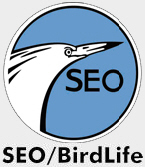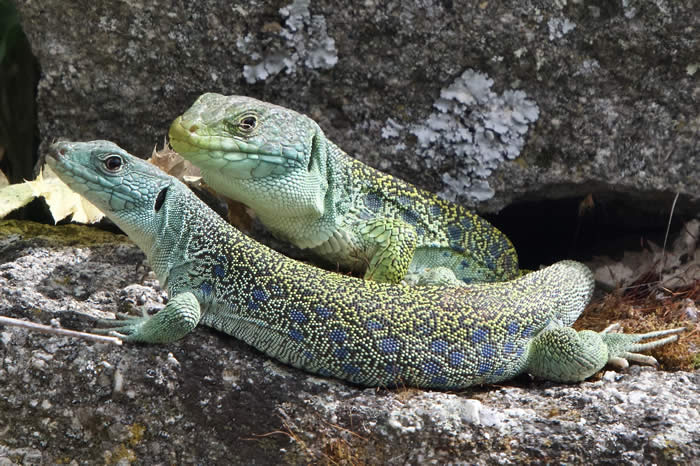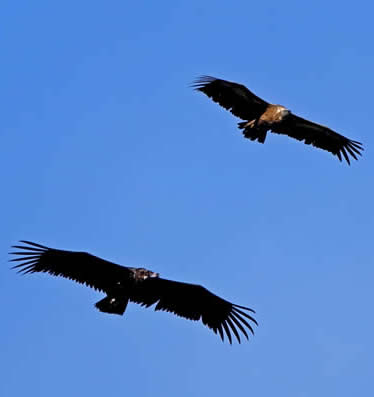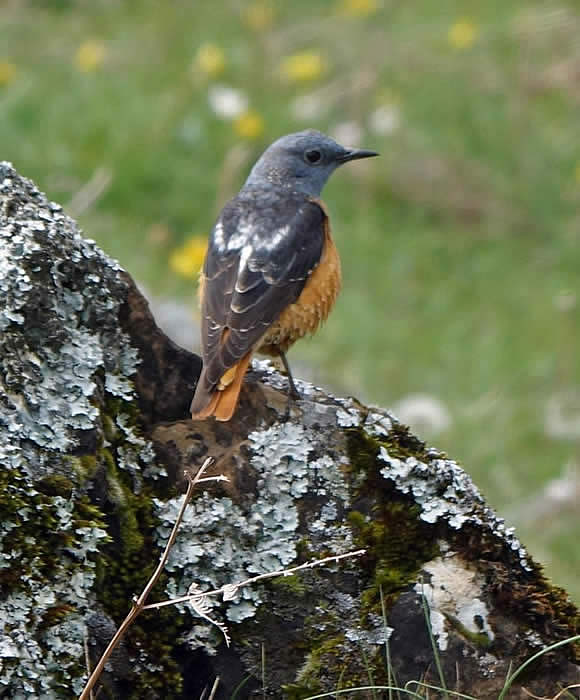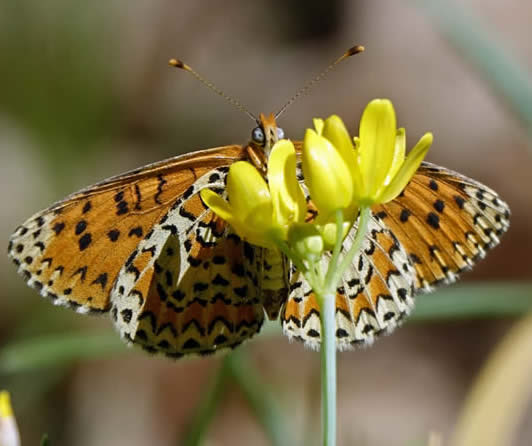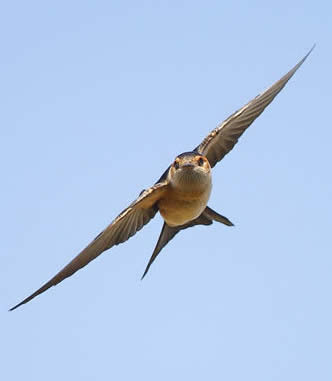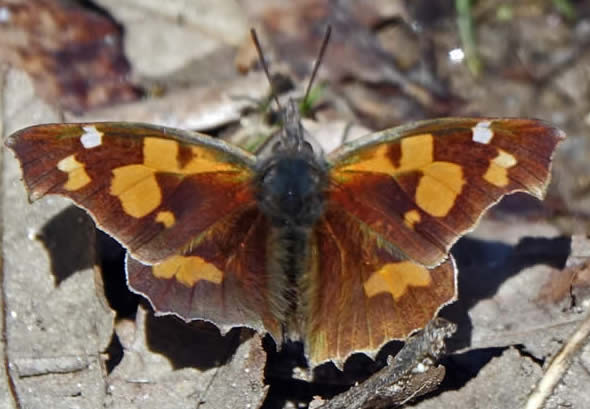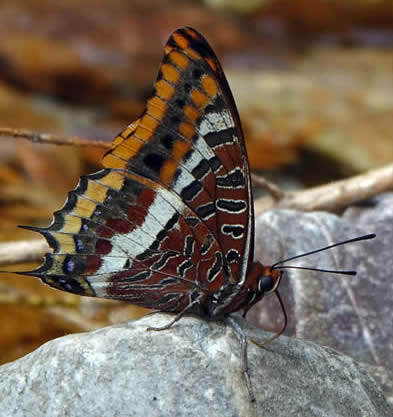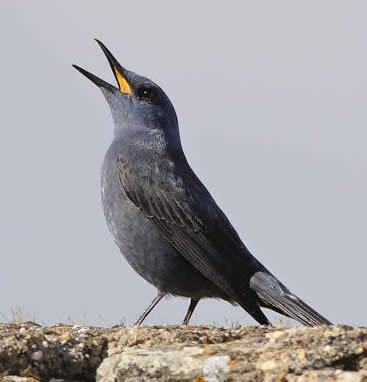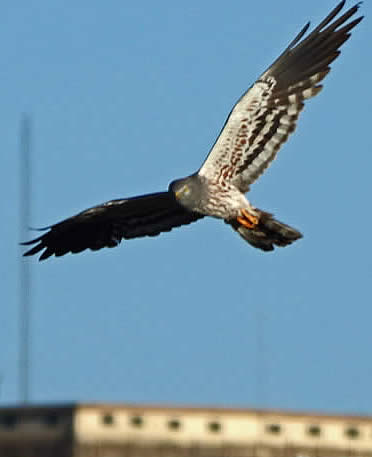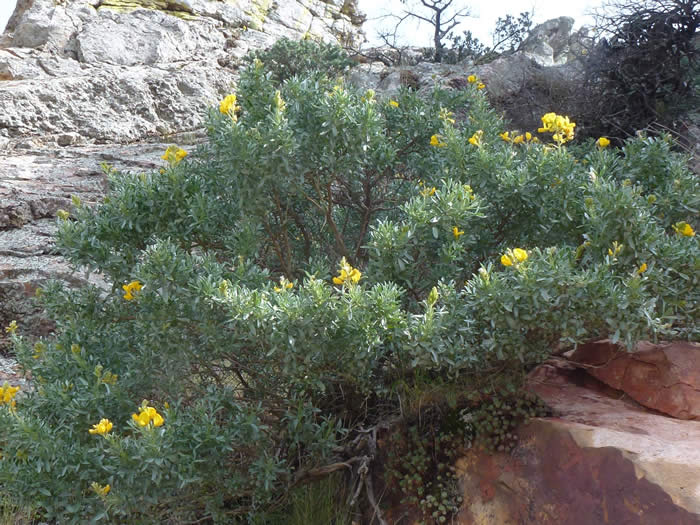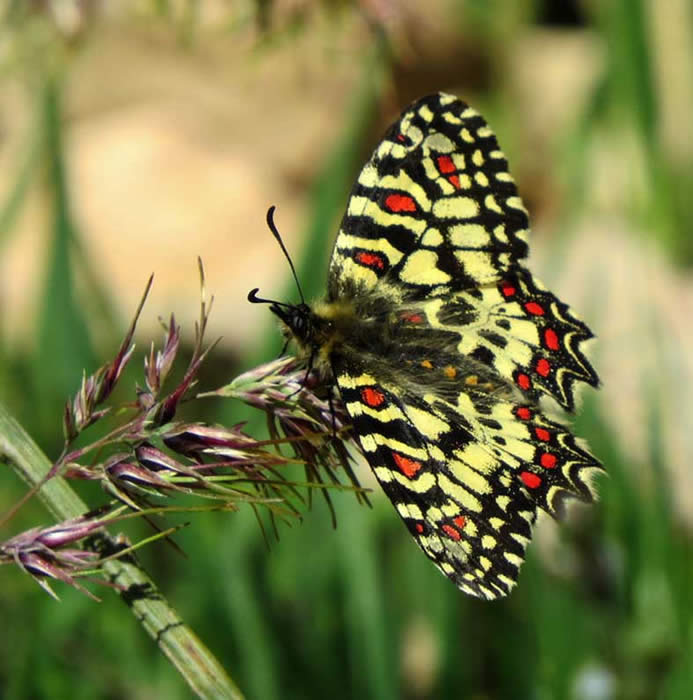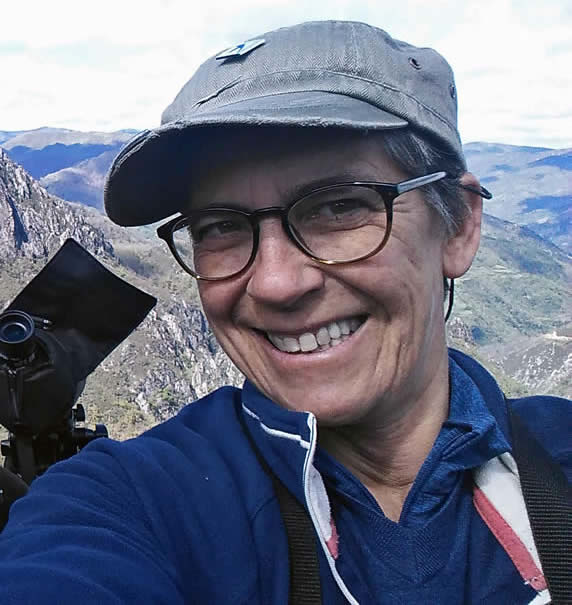South of Salamanca 10 – 17 May 2026
Spain's Wild West
This holiday visits an attractive yet largely undiscovered part of Spain. Every small town seems to have a castle, church with storks, a bridge over a rocky river, or sometimes all three. In between there are craggy heaths of lavender and broom and wood pasture of narrow-leaved ash or holm oak.
Not far away is an arable area with a remarkable concentration of crop-nesting harriers, plus calandra larks. A little farther afield are hills with a higher altitude mix of flowers and birds such as rock and ortolan buntings.

Granite heaths are a feature of the area, with lavender.
Riverside woods have orioles, nightingales and short-toed treeecreepers. There are cliffs with nesting griffon vultures and a few black and Egyptian vultures occur. There are certainly bee-eater colonies.
Our South of Salamanca 2023 group - following up a recce trip in February 2019 - confirmed the area's wildlife interest at a peak time for wildlife in early May. This is all based around guide Vega's local knowledge: her illustrated itinerary 2025 is another useful reference.
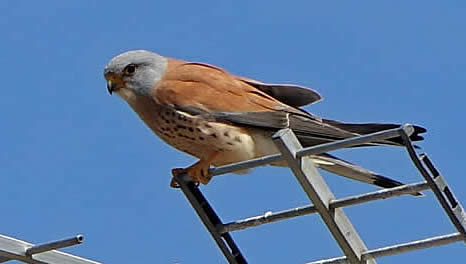
Lesser kestrel, Alba area, south of Salamanca (VB).
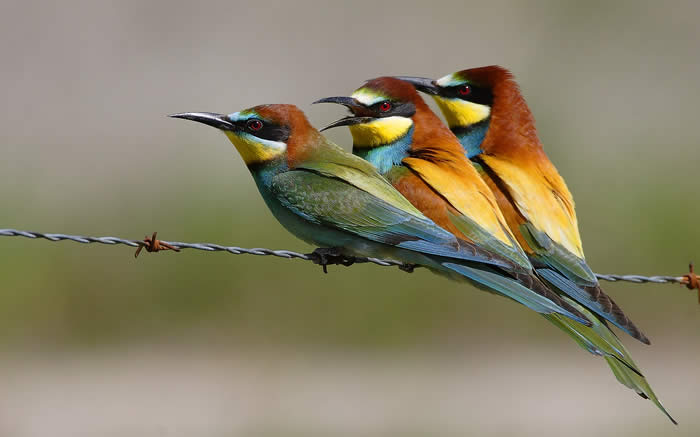
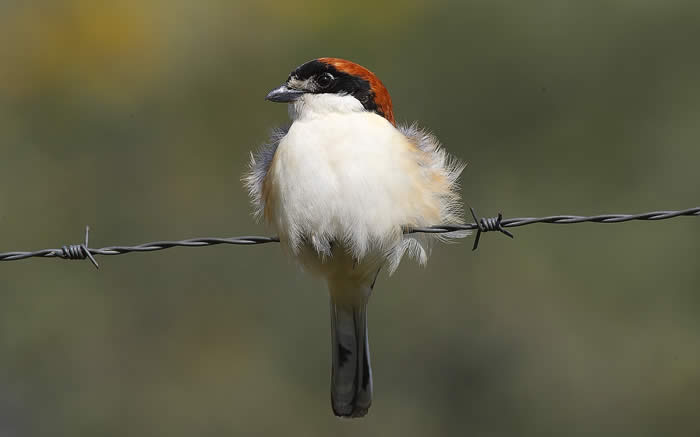
Bee-eater, woodchat shrike (Steve Fletcher).
Salvatierra, where we stay, is very much off the beaten track. To say it's a quiet village rather understates it: parts of the village are little more than rubble as rural depopulation has been sped up by the construction of the reservoir that the hotel overlooks. Yet the undisturbed, low intensity farmland, mostly small fields of sheep pasture surrounded by stone walls, brings wildlife benefits. Thekla larks, rock sparrow and hoopoe can be seen, plus the usual village birds such as black redstarts and serins.
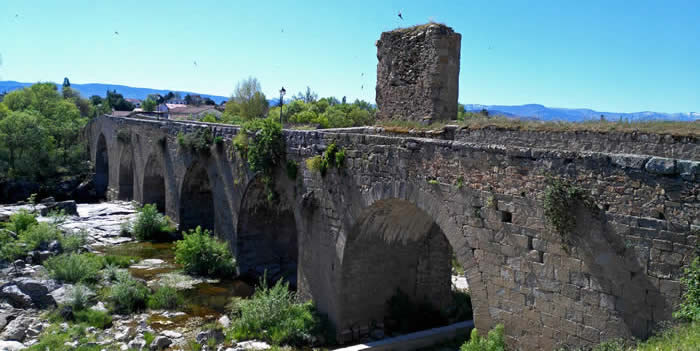
Puente del Congosto: river, bridge, church, castle.
Birds
As well as those already mentioned, we should see a selection of the following: black stork, booted and short-toed eagles, red and black kites, peregrine, raven, blue rock thrush, little owl, Iberian grey and woodchat shrikes, red-rumped swallow, woodlark, Sardinian warbler, Spanish sparrow, cirl and corn buntings and spotless starling.
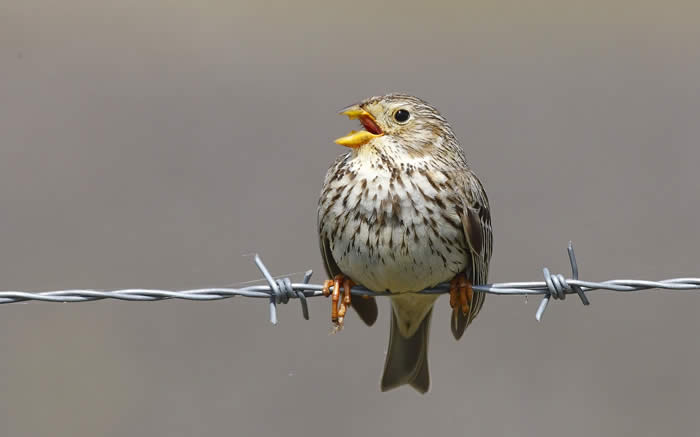
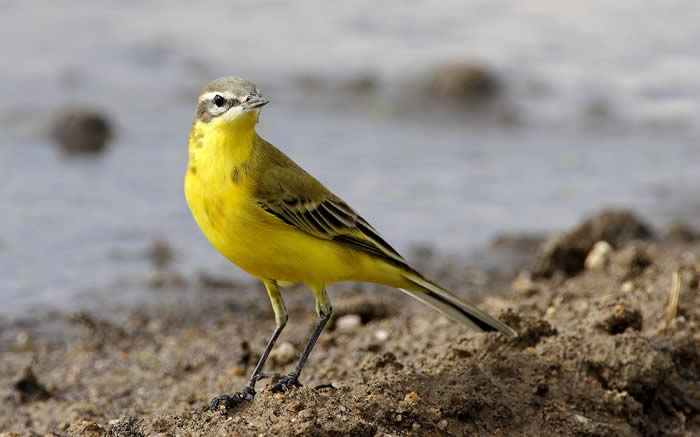
Corn bunting, yellow wagtail (Steve Fletcher).
Flowers
Spanish adenocarpus is a local endemic. Green-winged, early purple, champagne and tongue orchids are all in the area, which chime with what we'd expect, plus asphodels, star-of-Bethlehem and gagea species and hoop petticoat narcissi. There's a range from the rock-rose & cistus family. We can expect some interesting and perhaps tricky toadflaxes: Anarrhinum sp, the tiny amesthyst toadflax and Antirrhinum graniticum.
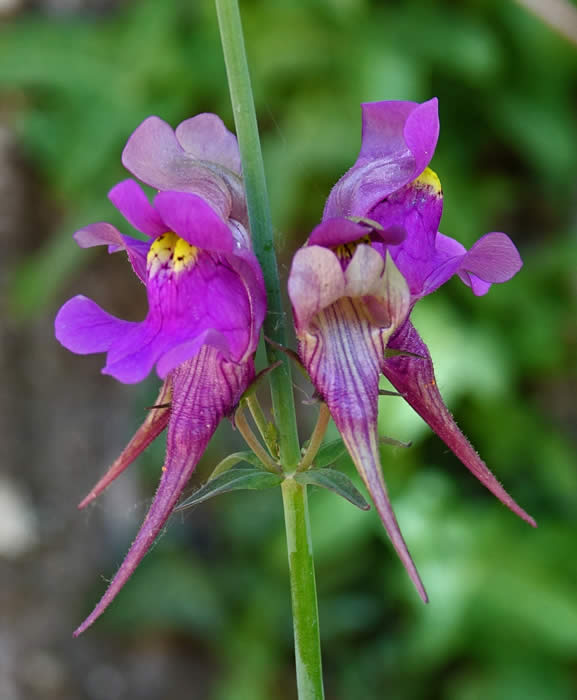
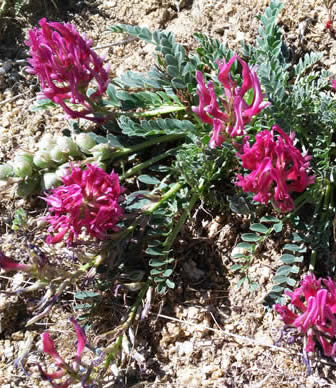
Linaria triornithophora, the 'thee birds flying' toadflax; Astragalus incanus.
Other wildlife
Most mammals - there are plenty here - are secretive (such as red squirrel and wild boar) or nocturnal. There are otters on the river in Salamanca, offering good view on the recce trip: whether that's usual or a stroke of luck we don't know. Iberian water frogs and wall lizards are plentiful. Tree frogs, midwife toads, green lizards and sharp-ribbed newts are in the area; best to assume they'll be tricky to see. May is an ideal time to see a good range of butterflies, including Spanish festoon, and other invertebrates.

Panorama at Salvatierra
Holiday details
We have seven days in Spain, plus travel days, allowing time to explore a range of places and habitats at a relaxed pace. The illustrated itinerary 2025 adds detail about the plan and wildlife we hope to see - it'll be similar in 2026.
We stay at Hotel Rural Salvatierra, which has successfully built a business in this rather remote part of Spain. We should note that the hotel is very traditional Spanish and though in principle they will help with special diets, vegetarian/vegan diets are not a natural strength.
Price: £1,850 per person in twin room for a full week, seven nights (Sunday to Sunday).
Single room supplement: £130
En suite facilities
Flights: Scheduled Ryanair flights London Stansted – Madrid
10 May: FR347 depart London Stansted 07:35 arrive Madrid 11:05
17 May: FR498 depart Madrid 13:50 arrive Stansted 15:15
Other flights may be possible, though it's essential that we can pick up, and drop off, all group members at the same time.
This holiday lends itself to anyone wishing to stay on Spain, for example in the Salamanca area, in and around Madrid, or places you can travel to from Madrid. We can, for example, arrange return flights on a different date.
There is a railway station in Salamanca and we can collect from there if there is anyone who prefers not to fly. See also Honeyguide holidays without flights.
Deposit: £400
Group size: 12. Usually we run this with a group size of up to 6, minimum group size of 4, with one leader, Vega Bermejo. This time we are using two guides / minibuses.
Conservation project
SUPPORTING
|
Montagu's harriers are declining everywhere, especially in nearby Extremadura, but this area remains a stronghold. They nest in crops – as do other harriers – so safeguarding them means active monitoring and working with farmers. Our local leader Vega is part of the local SEO team doing this. This adds further to our links to the Sociedad Española de Ornitología (Spanish Ornithological Society / BirdLife Spain), also supported by Honeyguide in Extremadura, the Spanish Pyrenees and Fuerteventura. |
Leader(s)
Vega Bermejo from 'Birding in Spain's Wild West' lives locally, though grew up in England. Working as a bird and wildlife guide is based around her knowledge of her local area, though she also looks forward to learning from a Honeyguide group, especially about flowers and other wildlife. She is an active volunteer with the local SEO/BirdLife Spain group, concentrating on safeguarding Montagu's harriers and other crop-nesting raptors. Vega has a minibus for local transport and Alfonso, Vega's husband, will also be on hand to assist with his vehicle; they'll use a local taxi service for airport transfers.
Chris Durdin (when a second guide is needed): for biography see Crete.


